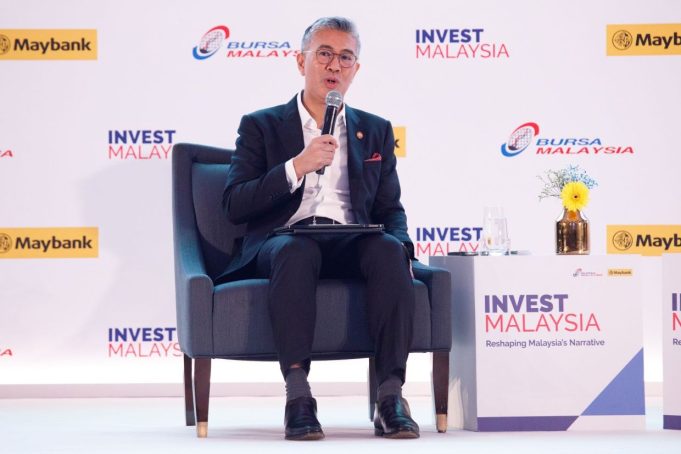KUALA LUMPUR: In 2022, Malaysia will have approved RM264.6 billion worth of investments. With the services sector taking the lion’s share of the market, followed by the industrial and primary sectors.
RM154 billion, or 58.2% of the total approve investments for the year, were allowed for the services sector.
According to International Trade and Industry Minister Tengku Datuk Seri Zafrul Abdul Aziz. Approved investments in the industrial sector were RM84.3 billion (31.9% of total investments). While those in the primary sector totaled RM26.3 billion (9.9%).
After 2021, he pointed out that the overall amount of approved investments was the second-largest print ever observed.
During the Malaysian Investment Development Authority (MIDA) media conference on Malaysia’s investment performance for 2022, he informed reporters. “There were two significant one-off investments that transpired in 2021 from Intel and China’s Risen Energy Co Ltd.
Tengku Zafrul stated earlier in his address that domestic direct investments (DDIs) made up 38.3 percent, or RM101.3 billion, of the total permitted investments. While foreign direct investments (FDIs) made up 61.7%, or RM163.3 billion.
The approved investments from the previous year, he continued, are anticipated to generate 140,370 new jobs nationwide.
The United States came in second with RM29.2 billion, followed by the Netherlands with RM20.4 billion. Singapore with RM13.5 billion, and China with RM55.4 billion as the largest FDIs (RM11.4 billion).
According to him, Johor (RM70.6 billion) received the majority of the permitted investments. Followed by Selangor (RM60.1 billion), Sarawak (RM28.2 billion), Kuala Lumpur (RM25.0 billion), and Penang (RM16.3 billion).
“With our increased focus on an efficient economic strategy, a welcoming business climate, political stability, and more coordinated investment promotion by all agencies. Both at the federal government and state levels, Tengku Zafrul stated. ” This must be improved even more in the near future.
In his speech, he emphasized how Malaysia’s New Investment Policy revisions are in line with the 12th Malaysia Plan (12MP). Which aims to reset the country’s economy by fostering sustainability, well-being, and inclusivity.
Due to a number of important elements, such as its highly developed information and communications technology infrastructure, robust intellectual property protection framework, and talent pool, Malaysia is also making every effort to quickly become ASEAN’s digital hub, he added.
He claimed that the “Academy in Factory” project of the International Trade and Industry Ministry (MITI) under Budget 2023 will likewise provide a consistent supply of skilled labor that meets industries’ needs.
Such actions “will keep Malaysia appealing as a location for enterprises. Aiming to grow their regional and digital footprint,” he said.
He stated that the deceleration in global economic growth may affect investment decisions globally. When it comes to the investment outlook for 2023.
Investments will be affect because they depend on demand and the International Monetary Fund (IMF). And World Bank predicted positive but slower economic growth than in recent years.
“Trade decisions differ slightly from investment decisions in that the latter are based on long-term strategies. The fundamentals of the nation are crucial “added said.
Tengku Zafrul further stated that Malaysia’s economy is anticipated to be resilient this year. Despite global difficulties such inflationary pressures, economic uncertainties, and climate change.
With a projected growth rate of 4.0%, the World Bank has predicted a promising future for Malaysia, he said.
The government’s most recent growth projection of roughly 4.5 percent is in line with the IMF’s prediction of a rise of 4.4%.
We have continued to participate in targeted trade and investment missions in addition to our existing activities.
multinational free trade agreements like the Comprehensive and Progressive Agreement for the Trans-Pacific Partnership and the Regional Comprehensive Economic Partnership.
“This will boost investors’ trust in our nation and, in turn, improve Malaysians’ and the business communities’ standards of living,” he said.
















